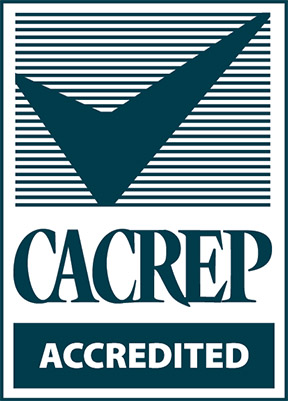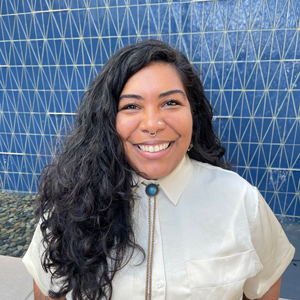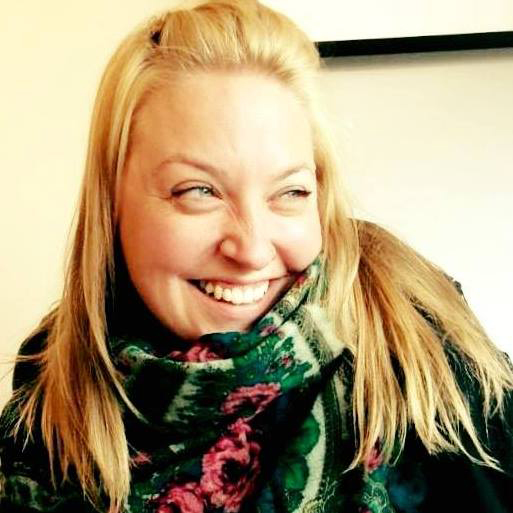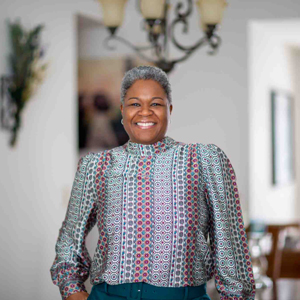MA in Counseling: Clinical Mental Health Counseling (Low-Residency)
Counsel others to cope with life’s challenges.
Counseling is a professional relationship that empowers diverse individuals, families, and groups to accomplish mental health, wellness, education, and career goals. We strive to give our adult learners the skills and knowledge needed to address the complexity of issues impacting the mental health of individuals and families. As a competency-based program, the curriculum represents the highest standards of professional ethics, theoretical integration, clinical skills, and multicultural and social justice counseling competencies. Students will learn to address the personal and environmental struggles of others while also accentuating their unique and inherent personal qualities for empowering change, creating fulfilling relationships, and leading meaningful lives.
This degree is offered by Antioch University's Seattle Campus.
Program Overview
The low residency Master of Arts program is based on the current Clinical Mental Health Counseling program at Antioch University Seattle, which has been accredited since 2012 by the Council for Accreditation of Counseling-Related Education Programs (CACREP). The curriculum meets the highest standards in counselor training and supervision with advanced competencies in multicultural counseling, evidence-based practices, and clinical competencies. At a total of 90 graduate credits, the low residency CMHC program provides a structure and set of experiences to help students develop the intellectual and relational capacities needed to understand and work with others in the professional practice of counseling, empowering diverse individuals, families, and groups. With a greater emphasis on multicultural counseling competence, the program will also equip students to address community and institutional inequities consistent with a social justice counseling orientation. These goals are accomplished through a combination of required coursework, electives, practical experience, and a supervised internship. Concentrations in Addiction Counseling, Advanced Multicultural Counseling, Play Therapy, and Human Sexuality are also available. The Clinical Mental Health Counseling program exceeds the educational requirements for state licensure in Mental Health Counseling (LMHC) and meets national curriculum standards described by the Council for Accreditation of Counseling and Related Educational Program (CACREP). Students in Clinical Mental Health Counseling address the following knowledge areas in their graduate studies:
- Graduate-level understanding of fundamental theoretical models of human behavior within the counseling field;
- The ability to make use of research literature and other sources of relevant knowledge as an integral part of the ongoing responsible practice of counseling;
- Skills in building relationships, including the development and deepening of self-awareness, empathy, ethical awareness, social responsibility, and respect for human diversity;
- Graduate-level mastery of counseling skills, including an ability to apply one’s knowledge and relationship-building skills to the counseling situation, to think critically about human behavior and the counseling relationship, and to integrate theory with practice in ways that facilitate ethical and effective practice as a counselor; and
- Knowledge of professional development issues, professional organizations, and state requirements for practice as a clinical mental health counselor.
- Developed with the working professional in mind, the MA in CMHC is a unique low-residence, three-year, and year-round cohort model. Classes meet on Monday afternoons and evenings. In addition to the online course work, students will attend two four-day residencies (winter and summer quarters) per academic year, in Seattle (Summer) and another west coast city (Winter). The residential experiences will provide opportunities for intensified face-to-face training and community enrichment and a seminar format for rich discourse and meaning-making. This collective experience is consistent with an infused emphasis on multicultural discourse, resilience, civil enrichment, and social justice.
For those interested in expanding their counseling career into the areas of teaching, supervision, research, and leadership, 72 credits of the master’s degree will transfer into the 144-credit PhD in Counselor Education & Supervision—the only program of its kind in the country due to the program’s Creative Arts Cognate.
2022 Recipient of the Robert Frank Outstanding Counselor Education and Supervision Program Award
Antioch University's MA in Counseling: Clinical Mental Health Counseling program is the recipient of the 2022 ACES Robert Frank Outstanding Counselor Education and Supervision Program Award. The Robert Frank Outstanding Counselor Education Program Award honors a counselor education program that exemplifies the importance of excellence through standards (which was the essence of Robert Frank’s career as a counselor educator) and innovation.
Additional Information
Licensure Information
This program is designed to lead to state licensure.
Additional Licensure Information
Accreditation

Antioch is accredited by the Higher Learning Commission. Our Clinical Mental Health Counseling specialization is accredited by the Council on Accreditation for Counseling and Related Educational Programs (CACREP). Our Art Therapy specializations are approved by the American Art Therapy Association (AATA). Our Drama Therapy specialization is accredited by the North American Drama Therapy Association (NADTA). Students enrolled in a CACREP program save between $5,000-8,000 on required supervision hours.
View our 2023 Counseling Department Annual Report
2023-2024 Annual Outcomes Report
Requirements:
The MA in Counseling with Clinical Mental Health Counseling helps students to develop the intellectual and relational capacities needed to understand and work with others in the professional practice of counseling. They will develop the skills you need to work as a counselor with multicultural, systemic, and integrative health competencies. These goals will be accomplished through a combination of required coursework, electives, and supervised fieldwork. The CMHC specialization is 90 quarter credits. Additionally, hybrid course sections are offered to better adapt to the working-student lifestyle. Students may begin the program in the fall, winter, or spring quarter.
This program can be completed in 3 - 3-1/2 years.
Elective Courses: Elective courses provide students with an opportunity to advance their clinical training in particular areas and to pursue interest areas with depth beyond material covered in the required courses. Elective courses are offered on a regularly scheduled rotation throughout the academic year. In addition, students are required to take one course from each of the following domains:
- Multicultural Counseling Series (titles vary), or
- Historical and Socio-Cultural Perspectives in Psychology Series (titles vary)
Elective concentrations are also offered in Addiction Counseling, Clinical Treatment courses (children, adolescents, older adults), Creative Modalities courses (music, writing, dramatic enactment, movement), Counseling & Spirituality courses (Introduction to Counseling & Spirituality, and Integrating Challenges in Psycho-Spiritual Work), and Advanced Theories courses (Psychosynthesis, Buddhist, Integral, Jungian, Existential, Cognitive, Adlerian, and Brief approaches) as well as select course work in the Couples and Family Therapy program and the Art Therapy and Drama Therapy specialties. Internship Course:
Internship & Case Consultation: Clinical Mental Health Counseling
Internship Experience: All students participate in an internship in a professional setting. This experience will enable you to validate and clarify the theory you acquire in the classroom as you develop your own role as a clinician. Examples of internship sites include the following:
- Community mental health agencies
- Career and employment agencies
- Correctional facilities
- Family service agencies
- Gerontological settings
- HMO’s/PPO’s/EAP’s
- Military and Government agencies including the V.A.
- Pastoral/religious/spiritual agencies
- Rehabilitation agencies
- Addiction treatment centers
- Youth and Family Agencies
- Substance abuse settings
- Private practice settings
- College counseling centers
- Integrative Primary Behavioral Health Clinics
- Group homes
- Homeless shelters
- In-patient psychiatric hospitals
The Clinical Mental Health Counseling program graduates roughly 32 students per academic year, and based on recent alumni data, 87% of graduates will obtain counseling-related employment within 6 months. A brief Alumni Snapshot is below:
- 91% licensed as mental health counselors
- 79% completed postmaster requirements in less than 2 years.
- 60% work in nonprofit organizations
- 84% report job satisfaction
- 73% have salaries between $44-74,000
Graduates of the Master of Arts in Counseling degree program explore many professional options upon graduation. They seek positions in community agencies, hospitals, mental health clinics, and private practices, as well as teaching at community colleges or engaged in consulting and research. If you choose to continue your education, the MA program provides a solid foundation for entering a doctoral program or obtaining post-master’s credentials in an area of professional interest, such as Counselor education and supervision, play therapy, substance abuse counseling or other clinical specialties.
The objective of the Clinical Mental Health Counseling program is to provide students with learning in both knowledge and skills building for the practice of mental health counseling as outlined by the Council on Accreditation for Counseling and Related Educational Programs (CACREP), the standard bearer for the profession. The curriculum is designed to meet these standards across 8 student-learning domains to ensure that graduates can be competent mental health professionals and meet the necessary licensure requirements of the profession. These domains are:
Family Systems Perspective: Students will have an understanding of family and other systems theories and major models of family and related interventions.
Professional Identity & Ethics: Students will acquire identities as professional mental health counselors who are knowledgeable about the philosophy, ethics, history, and future trends of the profession with a commitment to life-long learning and professional development. Students will be knowledgeable of the professional ethical guidelines and demonstrate their knowledge and use of at least one ethical decision-making model as they apply it to cases involving various professional domains.
Diversity & Advocacy: Students will recognize, understand, and respond to social and cultural differences and change in our society related to (but not limited to) factors of socioeconomic status, unemployment, aging, gender, race and ethnicity, developmental transitions, and sexual orientation. Students will demonstrate their ability to go beyond the conventional practice of providing individual and group counseling and to take leadership in advocating for clients and for systemic change to improve counseling and developmental services and programs.
Human Growth & Development: Students will possess a foundation for understanding human behavior and development with the skills needed to provide individual counseling, assessment, and other training to facilitate decision-making and developmental life transitions.
Career and Life Planning: Students will be knowledgeable and skilled in helping clients make life and career decisions.
Individual and Group Counseling: Students will have the knowledge and skill competencies in the counseling process and be able to work effectively in a variety of modalities (individual, group, family) and to use crisis intervention, brief counseling, and long term mental health approaches.
Research and Analytical Skills: Students will demonstrate the knowledge, skills and dispositions associated with conducting and interpreting social science research. Specifically, students will demonstrate their abilities of developing research and evaluation questions and selecting and using appropriate methods for data collection and analysis. Students will also show their ability to apply existing theory and research to the practice of counseling.
Assessment and Diagnosis: Students will have the ability to gather, interpret, and utilize a variety of assessment data. This will include the ability to select, administer, and interpret appropriate standardized tests for individual and group assessment of client needs and to complete program evaluations. Student will understand the principles of the diagnostic process and established criteria in developing treatment modalities and criteria for a continuum of care.
Faculty Spotlights

Ana Guadalupe Reyes, PhD, LPC, NCC, CHST
Core Faculty

Alyssa K. Griskiewicz ATR-BC LMHC
Teaching Faculty

Erica Wade, PhD
Core Faculty

Johnny Spangler
Affiliate Faculty
Admissions
How to apply
- Completed the online admissions application.
- A Bachelor’s degree from a regionally accredited institution is required. Submit official transcripts from ALL colleges/universities you have attended to the Admissions Office. Transcript evaluations are required for all coursework completed outside of the U.S. or Canada (except Quebec). See Transcript Evaluation section on International Students webpage for details.
- Two recommendations are required. Use the online application form to enter the names and email address of your recommenders. Your recommenders should include people who can best assess your capabilities and readiness to enter a graduate clinical training program. These include social science instructors that you may have had in college as well as professionals who have provided supervision of work you have been involved in a helping role with people in a mental health, social service or educational setting. Recommendations from peer co-workers, friends, relatives, or personal therapists are not acceptable and will not be reviewed.
- Resume
- Admission Essay Submit a typewritten, double-spaced, one to two-page (between 250 and 500 words) response for each question and clearly number your response for each question. Essay questions:
- We are curious about your previous experiences (e.g., personal, professional, and academic) and would like to know how these experiences have led you toward the choice to apply to the Clinical Mental Health Counseling Program at Antioch University. Please describe a few of those fundamental experiences.
- The Clinical Mental Health Counseling Program is both academically and emotionally rigorous. What challenges, if any, do you foresee encountering during your studies? What forms of support will you use to meet those challenges?
- Antioch University and the Clinical Mental Health Counseling Program are committed to preparing professional counselors to be culturally competent and become advocates for social, economic, environmental, and racial justice. How does social justice and becoming culturally competent align with your interest in becoming a professional counselor?
- What are your professional goals in relation to the Clinical Mental Health Counseling Program, and how will this program specifically help you to reach those goals?
- Select applicants may be invited to participate in a group interview with faculty.
- Optional: If you do not feel as if your academic transcript(s) reflect your current ability to be successful as a graduate student, please be sure to highlight a plan for being successful in this program.
All admission application supporting materials, transcripts, essays, etcetera, should be emailed to [email protected] or mailed to the: Admissions Office Antioch University Seattle 2400 3rd Avenue, Suite 200 Seattle, WA 98121
Application Deadlines
| Quarter | Application Deadline* |
|---|---|
| Summer | February 1 |
| * Complete applications received after the Deadline date may be considered if space is still available in that quarter or will be reviewed for the next available term. | |
| Please review the Academic Calendar for additional details. | |
Cost
| MA in Counseling- Clinical Mental Health Counseling | |
|---|---|
| Cost per Credit | $868 |
| Full-Time Credits per Quarter | 6 |
| Total Program Credits | 90 |
| Residency Week Fee (Winter and Summer Semesters) | $1500 per residency (a total of 4) |
| View the Cost of Attendance Components | |
Financial Aid
Financial Aid is also available to most students. LEARN MORE

Start your Antioch Journey
Take your next step - talk to our admissions team to find the right program for you.
